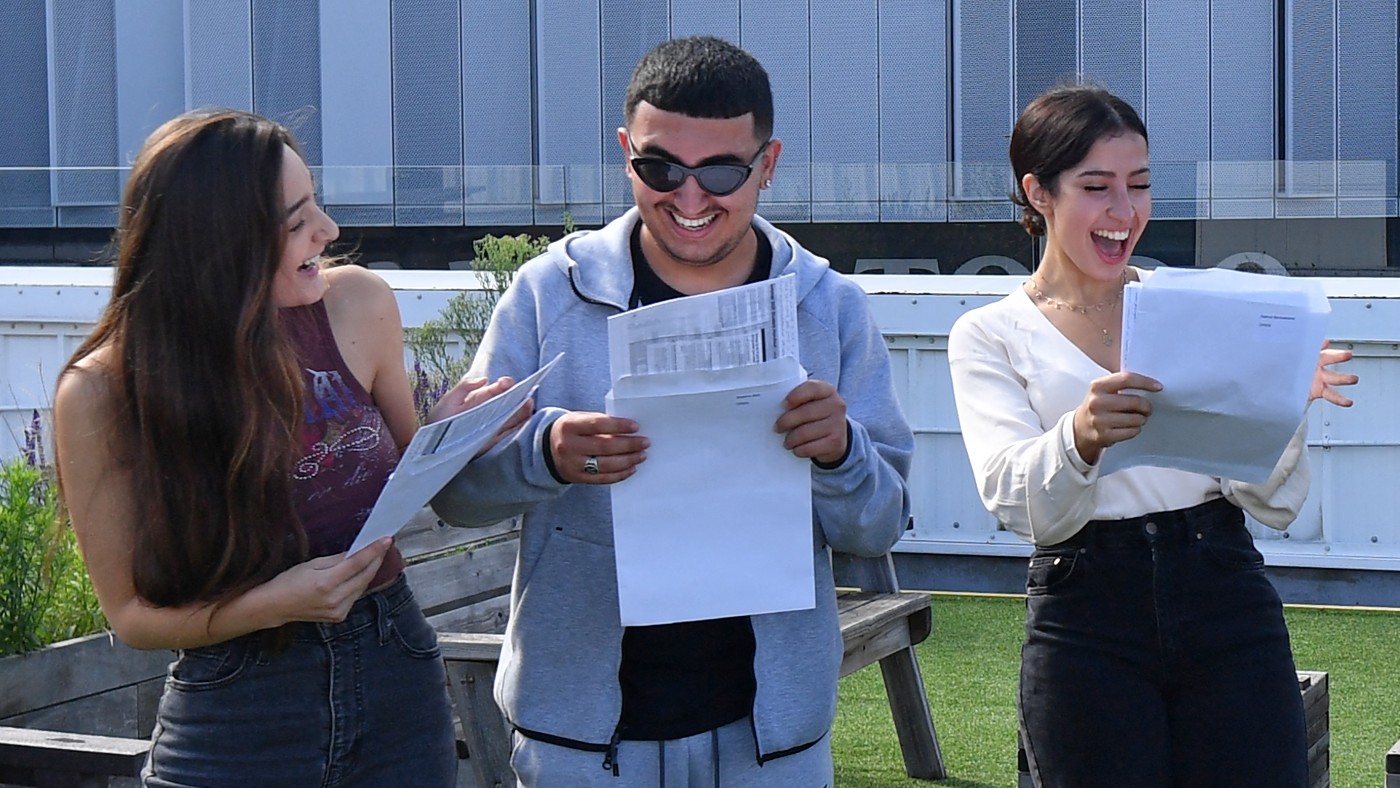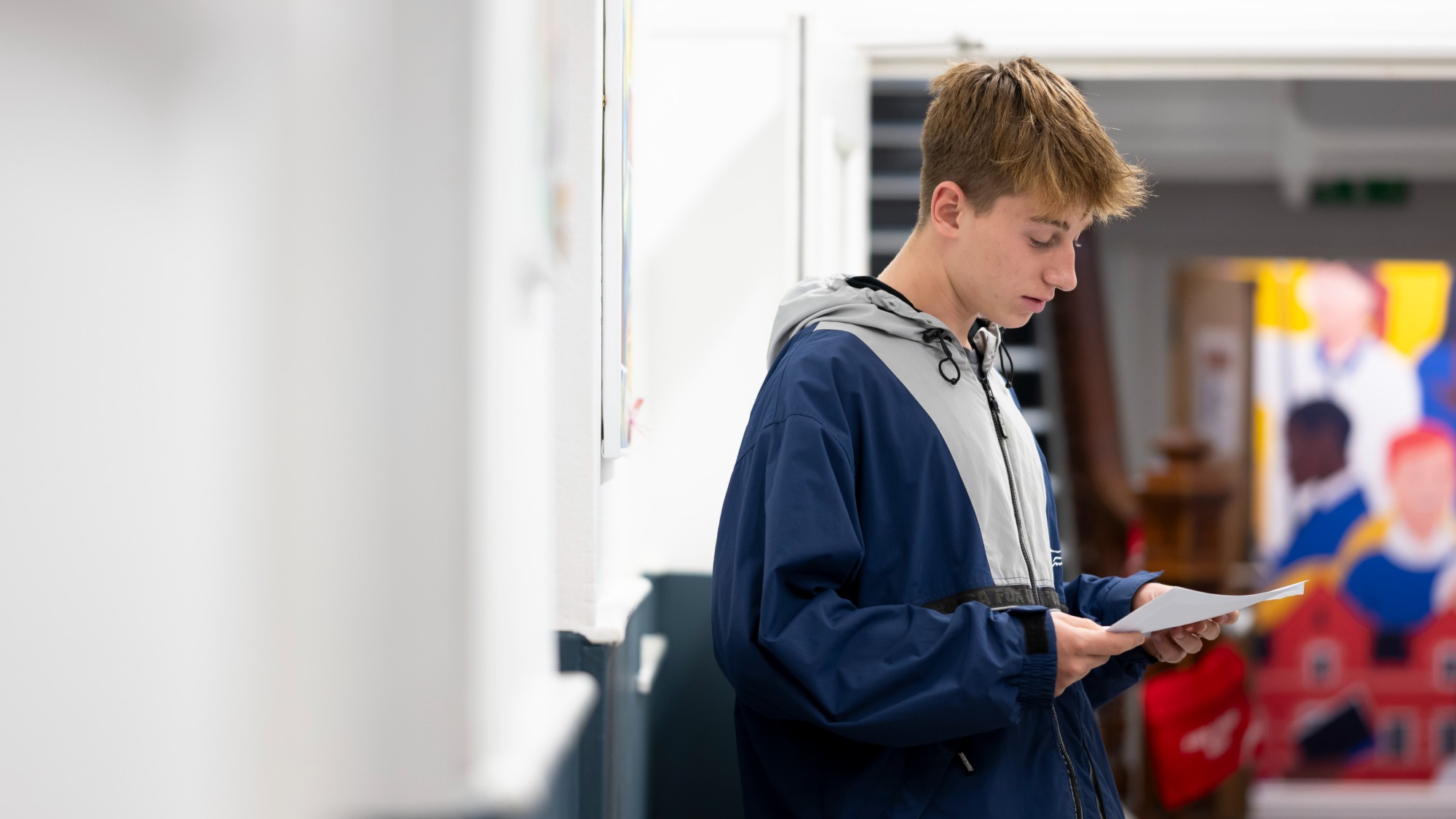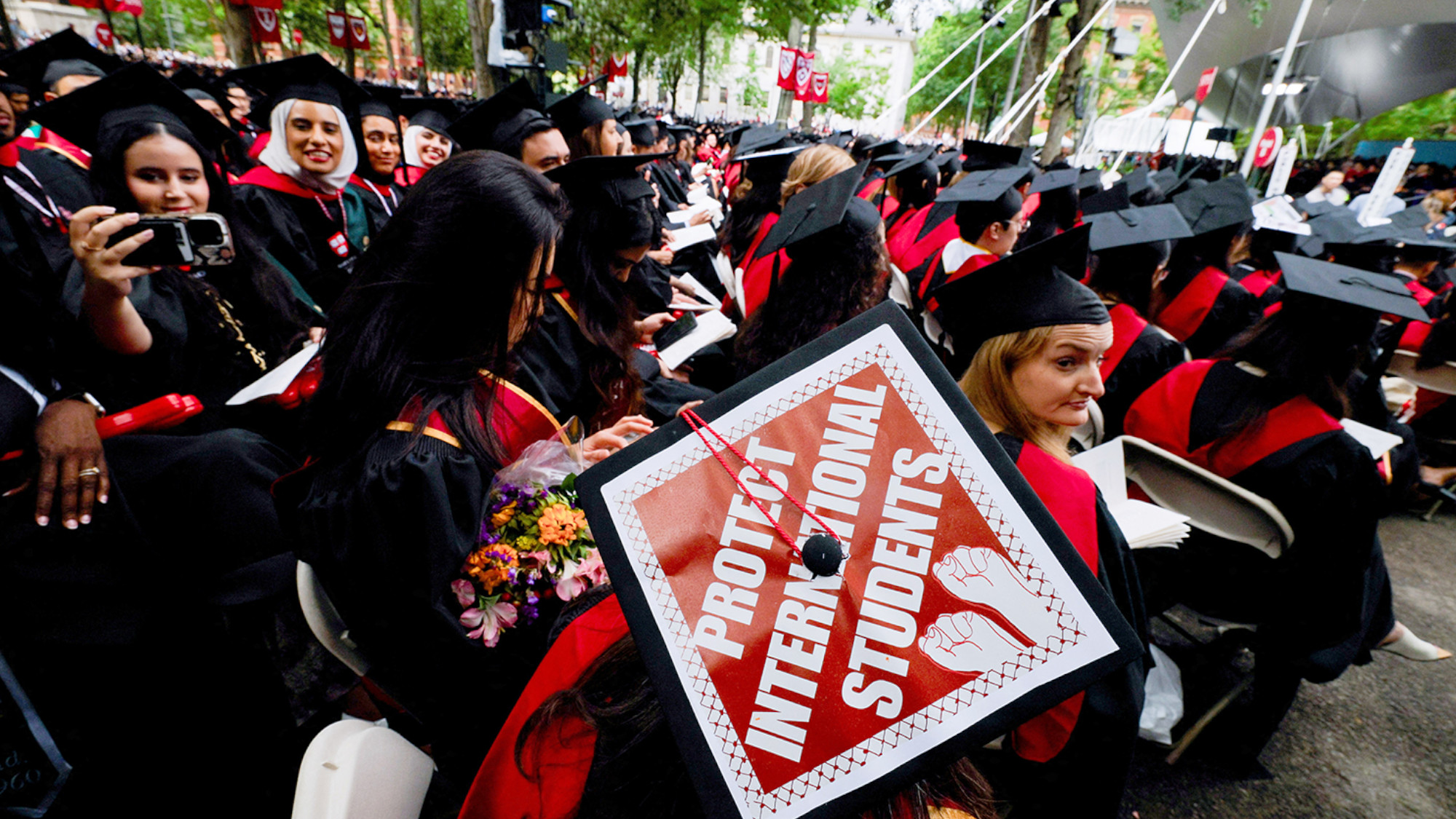Top marks at A level
Record results caused problems for universities and raised questions about inequalities

A free daily email with the biggest news stories of the day – and the best features from TheWeek.com
You are now subscribed
Your newsletter sign-up was successful
I don’t want to tread “on the sufferings and dreams” of this year’s A-level crop: I know what a struggle it has been for them in the pandemic, said Douglas Murray in The Daily Telegraph. That said, we can’t just greet news of record high A-level results with a “hurrah”. Almost 45% of students in England, Wales and Northern Ireland achieved A* or A grades this year, compared with 25.5% in 2019. Unless you think this cohort comprises the best students of all time, what we have is a huge issue with grade inflation. What did you expect, said Stephen Bush in the New Statesman. When grades are awarded on the basis of assessments made by schools and teachers, rather than standardised exams (which were ruled out by lockdown), that’s what you get. In the absence of any central guidance on how to award grades, teachers erred on the generous side, knowing a lower grade would disadvantage their own pupils relative to others. Then again, is this really such a big problem? Universities and employers are surely smart enough to accept this was an extraordinary year and to adjust admission procedures in light of that.
In any case, teacher assessments are preferable to one-off exams, said Leon Hady in The i Paper. Watching a student’s progress over a year is a far better gauge of ability than “a two-hour ordeal in a converted sports hall”. But that ignores the purpose for which A levels were introduced, said Ben Lowry in the Belfast News Letter, which was as a method of discriminating between students. That was why the percentage of pupils getting each grade was initially fixed – the best 10% getting an A, the next 15% a B, and so on. The problem of grade inflation set in when the fixed percentage system was scrapped in the 1980s: it has become especially acute now that, instead of markers assessing the scripts of pupils they don’t know, teachers have been marking the tests of children they do know.
What bothers me, said Zoe Williams in The Guardian, is not the grade inflation itself, but the hideous inequalities it conceals. Break down the figure of 44.8% getting A* and A grades and you find that 70% of pupils at fee-paying schools did so, but just 39% at comprehensives. That may partly be due to less face-to-face online teaching being done in state schools. Mainly, I suspect, it’s because in ceding control of assessment to teachers, the Government exposed private school teachers to the full force of parental pressure. I can vouch for that, said an anonymous English teacher in The Times. Parents at the school I teach at “make it clear what grade they expect their child to receive”, and react with fury if they don’t get it. To counter that pressure, one should have been able to rely on people from the exam board looking over the work assessed and giving an independent verdict on the correctness of assessments. No such help was forthcoming. Normally on results day, I go in to congratulate my pupils; this year we were advised to stay away, lest parents took anything we said as grounds for appeal. This lousy system has undermined the efforts of teachers and students alike.
The Week
Escape your echo chamber. Get the facts behind the news, plus analysis from multiple perspectives.

Sign up for The Week's Free Newsletters
From our morning news briefing to a weekly Good News Newsletter, get the best of The Week delivered directly to your inbox.
From our morning news briefing to a weekly Good News Newsletter, get the best of The Week delivered directly to your inbox.
A free daily email with the biggest news stories of the day – and the best features from TheWeek.com
-
 The ‘ravenous’ demand for Cornish minerals
The ‘ravenous’ demand for Cornish mineralsUnder the Radar Growing need for critical minerals to power tech has intensified ‘appetite’ for lithium, which could be a ‘huge boon’ for local economy
-
 Why are election experts taking Trump’s midterm threats seriously?
Why are election experts taking Trump’s midterm threats seriously?IN THE SPOTLIGHT As the president muses about polling place deployments and a centralized electoral system aimed at one-party control, lawmakers are taking this administration at its word
-
 ‘Restaurateurs have become millionaires’
‘Restaurateurs have become millionaires’Instant Opinion Opinion, comment and editorials of the day
-
 Education: More Americans say college isn’t worth it
Education: More Americans say college isn’t worth itfeature College is costly and job prospects are vanishing
-
 How will new V level qualifications work?
How will new V level qualifications work?The Explainer Government proposals aim to ‘streamline’ post-GCSE education options
-
 School phone bans: Why they're spreading
School phone bans: Why they're spreadingFeature 17 states are imposing all-day phone bans in schools
-
 Schools: The return of a dreaded fitness test
Schools: The return of a dreaded fitness testFeature Donald Trump is bringing the Presidential Fitness Test back to classrooms nationwide
-
 Columbia: A justified surrender to Trump?
Columbia: A justified surrender to Trump?Feature Columbia agrees to a $221M settlement and new restrictions to restore federal funding
-
 Education: America First vs. foreign students
Education: America First vs. foreign studentsFeature Trump's war on Harvard escalates as he blocks foreign students from enrolling at the university
-
 Education: Can public schools be religious?
Education: Can public schools be religious?Feature A Supreme Court seems ready to rule in favor of religious charter schools in Oklahoma, which could reshape public education
-
 Intelligence service: how schools are managing AI
Intelligence service: how schools are managing AIIn Depth Machine-thinking has the potential to create a paradigm shift in education but the change and challenges are huge